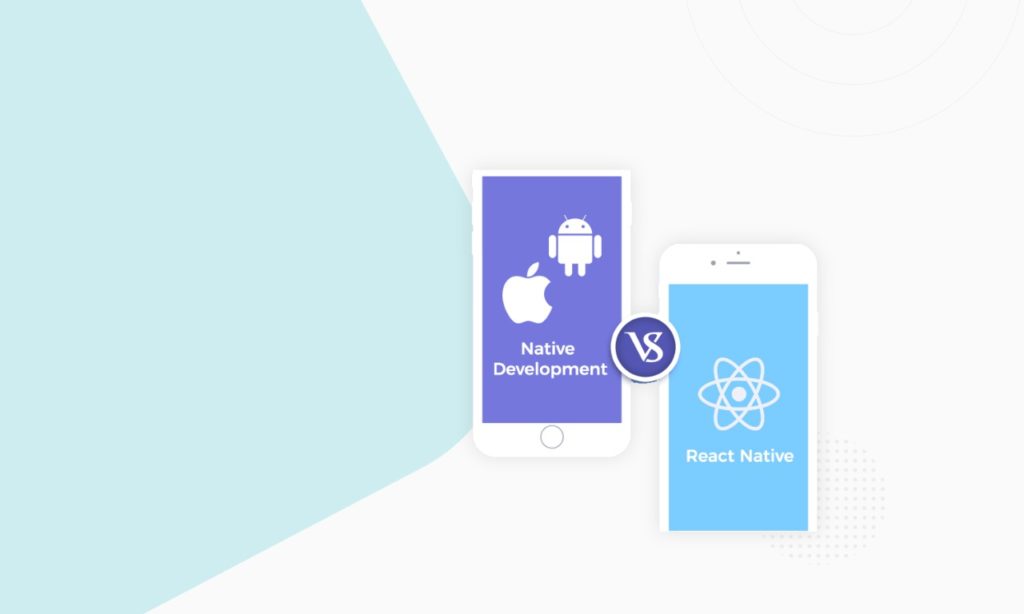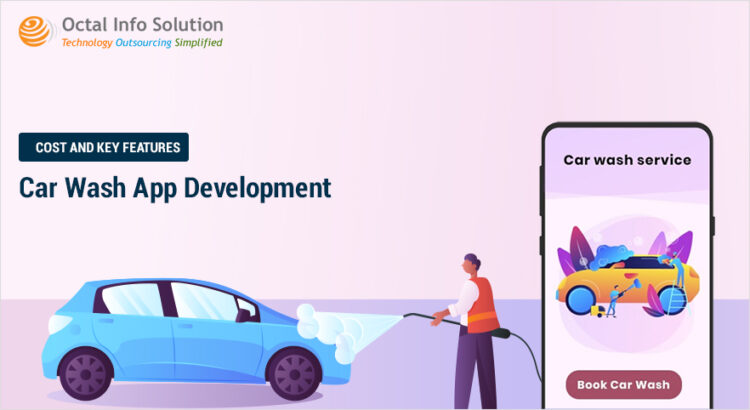Even if the names are almost identical, React Native and Native are not spoken of the same. In contrast to native app development, React Native is a cross-platform app that can incorporate special functions of a native app.
Here the question arises: Will the React Native framework replace Native App Development in the future?
Native App Development
With native app development, the app to be programmed must be developed individually for each operating system (iOS, Android, Windows). Even if this is associated with a higher budget and time, native apps can access the company-specific functionalities (e.g. camera, Bluetooth) and significantly improve the user experience of the consumers. Since different programming languages are required for the development of an Android app than for an iOS app, native app developers usually specialize in one of the two operating systems and delve deeply into the respective programming languages.
React Native
React Native was originally developed by Facebook and announced publicly in February 2015. Since then, work has continued on the framework and the functionalities have been further developed and optimized. The new versions are available immediately after publication, so you can always work with the latest version. Before we dive deeper into the subject, I would like to go into the term “framework”, which is often also referred to as a programming framework. A framework contains individual functions that are already pre-programmed, which you as a developer can use. As individual components, so to speak, from which you can take what you need.
Benefits of App Development with React Native
The use of the React Native framework enables mobile developers to develop an app for both iOS and Android with just one codebase. This saves the work and time that would otherwise have to be spent to program the app individually for each operating system (which a react native development company does). Depending on whether you decide to have your app programmed externally, the budget factor also plays a decisive role. You don’t need two mobile developer teams, just one with the appropriate expertise in cross-platform mobile app development. Well-known companies such as Instagram or Airbnb have already recognized this advantage and have therefore programmed their apps with React Native.
When dealing with React Native, JavaScript is the go-to programming language. React Native is able to translate the JavaScript source code to native components, the so-called bridges. For mobile developers, this means that you don’t have to concentrate on the complexity of native programming languages like Swift or Kotlin. With knowledge and skills in React and JavaScript, it is sufficient to develop an almost real native app.
Also Read: Flutter vs. React Native vs. Ionic
The incredibly fast response times are decisive for many users of the React Native framework. If you want to change something in a native app, the code must be compiled anew each time it changes. Only then is it possible to test the modulations on the smartphone. Depending on the type of change, a lot of time can pass here before testing can finally be started. However, the React Native framework is different. Features such as Live Reload or Hot Reloading make changes in the code immediately clear in the app. This not only saves time but also protects the resilience of the developer.
The dark side of the React Native framework
So far, React Native sounds like the solution to all problems, right? Unfortunately, I have to disappoint you, because even though there are many reasons to get started with React Native, there are also some points that you might want to change your mind.

Probably the most important reason to choose React Native is that you are dependent on a comm
unity. As soonas React Native is no longer provided by Facebook or the current community, your aid will be lost. So if you choose to React Native, you are exposed to a fairly large risk. After all, you can no longer change your app or optimize it for users.
Even if you have the ability to incorporate native elements with the React Native framework, React Native Apps do not meet the quality standards that are equated with native apps. Only with the native app development can the integrated functions of the respective operating system be taken into account, whereby the user interface can be designed in the way the user is already used to. The user experience is therefore not comparable to that of an app with React Native.
Since the apps are developed specifically for the respective operating system, the level of performance in native app development reaches a different horizon. A native app fits into your environment as if it were at home because the operating system is your home. Unfortunately, this level is almost impossible to achieve with React Native. If your app is to offer an outstanding user experience for the user, you should, therefore, opt for purely native app development.
The solution for your app
Now to the most important question: Which variant of the app development is better? React Native or native app development?
As you probably guessed, there will be no clear answer here either. Even if React Native simplifies the development process, native apps stand out in terms of user experience and performance. We can only say comfortingly that it depends on your individual project.
If you have a low budget or you want your app to be available in all stores, then React Native is probably a good way to achieve this. However, you need to have a certain affinity for risk. However, if you want an app especially for an operating system or with a great user experience by integrating all native components, native app development is the clear winner. You are welcome to contact us and we will support you in finding the right solution for your app challenge.

















